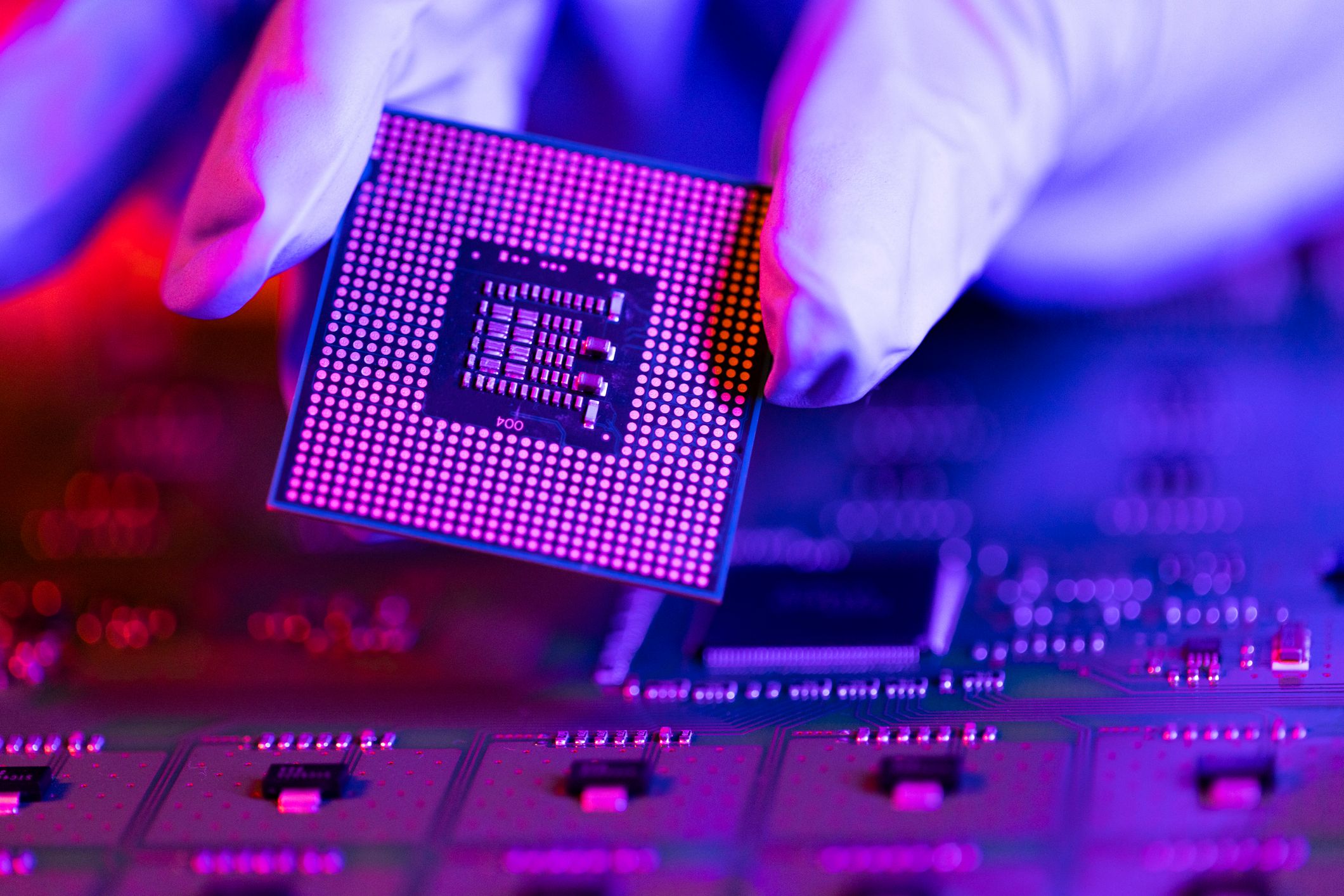Although we don't believe in timing the market or panicking over market movements, we do like to keep an eye on big changes -- just in case they're material to our investing thesis.
What's happening
Shares of NXP Semiconductors (NXPI 1.59%) rose as much as 17% on Monday after the company announced it's combining with Freescale Semiconductor (NYSE: FSL) to form the market leader in automotive semiconductors and in general purpose microcontroller products. The transaction, which values the combined enterprise at $40 billion, will produce the world's 8th largest chipmaker with revenues in excess of $10 billion.
Why it's happening
Billed as a merger, NXP is actually acquiring Freescale in a cash-and-share deal in which shareholders of the latter will receive $6.25 in cash and 0.3521 NXP share for every Freescale share they own. Interestingly, based on Friday's closing prices the deal terms implied essentially no premium for Freescale's shares (a bid value of $36.14 vs. Freescale's $36.11 closing price.)
The lack of a premium may reflect that Freescale, which is 64% owned by a group that include private equity heavyweights Blackstone and Carlyle, has struggled in the wake of the financial crisis. Indeed, as Bloomberg notes, "for Freescale's private-equity owners, the transaction is a partial exit as the company's stock price approaches what it cost them to buy it eight years ago." Needless to say, these investors aren't in business to break even on their acquisitions.
This deal looks like a big bet on cost synergies (NXP expects cost savings of $200 million in the first year and $500 million annually thereafter) and scale. NXP CEO Richard Klemmer, who will remain at the head of the combined company, says "we fully expect to continue to significantly out-grow the overall market, drive world-class profitability and generate even more cash, which taken together will maximize value for both Freescale and NXP shareholders." That is no slam-dunk – I'd suggest investors monitor the progress of this acquisition closely.



